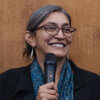Global inequality – its historical legacies as well as its contemporary configuration – is well analysed through interdisciplinary research that brings together economists, historians, and sociologists to examine the nature of inequalities, how they emerged, and their ongoing implications in the present. As President of the British Sociological Association, I’m pleased to welcome collaborations, such as those fostered by the LSE’s International Inequalities Institute, who are behind the recent report examining the who, what, and where of UK ‘non-doms’. The report – as one of its authors, Mike Savage, notes – reveals a complex story of the current British economic elite beyond the current attention-grabbing headlines about Russian oligarchs.
‘Non-doms’ is the term associated with individuals who live in the UK but who claim on their tax return that their permanent home, their ‘domicile’, is elsewhere. This enables them to avoid paying tax on any overseas income and only pay it on that portion of their income which is earned in Britain or is brought in from overseas. This practice emerged with the introduction of Income Tax in the late eighteenth century and has remained on the statute books ever since, despite some attempts to abolish the category. It is unique to Britain and emerged in the context of empire to enable the wealthy to ringfence their colonial gains away from national scrutiny.
The Napoleonic Wars, which were the occasion for the introduction of the new Income Tax, occurred during the height of colonial extraction of wealth from India and the peak of the transatlantic trade in human beings. The East India Company, the Royal African Company and others had a number of MPs on their payrolls. These political connections were leveraged to organised sustained resistance to increased direct taxation and, as Patrick O’Brien argues, the legislation that subsequently emerged ‘provided taxpayers with numerous possibilities for evasion’. This included exempting foreign income and assets – that is, income and assets derived from empire and colonial ventures – from taxation in Britain.
With the end of formal empire, it might have been assumed that the structures that facilitated these avoidances would themselves have been dismantled. Instead, they increased in number and became available to a wider global elite willing to reside in Britain. The analysis provided by Advani, Burgherr, Savage and Summers points to the transformation of this elite after empire, while also highlighting empire’s centrality to its ongoing connections. The number of individuals who have ever claimed ‘non-dom’ status over the last 20 years make up about 1% of the UK’s population. 93% of them were born abroad with an additional 4% having spent considerable time abroad.
As Advani, Burgherr, Savage and Summers show, most ‘non-doms’ live in London with some outposts in Oxford and Cambridge. In effect, while not being integrated into the tax system, they are integrated into the highest political and cultural circles. Their political interests are catered for – one might say, represented without taxation – and they are a determining part of a British culture of inequality that venerates wealth and allows poverty to grow. This research makes a vital contribution to a new sociology of inequality and has the potential to transform the research and policy landscape. As Andy Summers highlights, in a period of rising costs of living and taxes rises, tax breaks for the very wealthy certainly deserve further scrutiny.
Policy Brief The UK’s ‘non-doms’: Who are they, what do they do, and where do they live? is by Arun Advani, David Burgherr, Mike Savage and Andy Summers.
Gurminder K Bhambra FBA FAcSS is President of the British Sociological Association and Professor of Postcolonial and Decolonial Studies at the University of Sussex.


